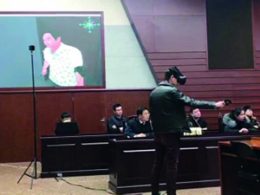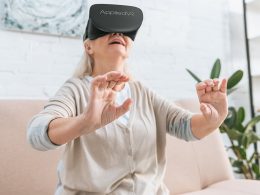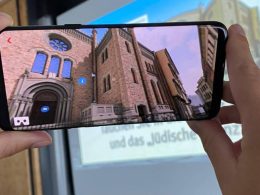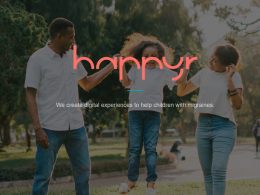After a stroke, many people have to practise. A new technology developed in Austria integrates tablets and virtual reality into the rehabilitation process.
After a stroke, a large proportion of those affected remain disabled in one way or another. Rehabilitation usually takes a long time and the therapists' time for individual patients is limited. Rehago's first project for stroke patients with hemiplegia we already presented last year.
In order to improve the treatment options, experts from the FH Health Professions Upper Austria Together with an Austrian start-up, the University of Applied Sciences is also exploring the new technological path. "In addition to conventional therapy, we also want to use tablets and virtual reality tools for the rehabilitation of stroke patients," says Doris Detter-Biesl from the speech therapy degree programme.
In cooperation with the medical device company Rewellio, for example, a virtual reality software module was developed that captures even the most minimal muscle activity of the patient and uses it to control a virtual hand. "The virtual reality headset gives the patient the impression of being able to grasp again," says Rewellio founder Georg Teufl.
The tried-and-tested physiotherapist and software developer knows how important immediate feedback is for stroke patients when relearning lost skills. "Even very weak movements are reinforced with this tool, which is very motivating for those affected." And motivation is urgently needed, because "the more often an exercise is carried out, the faster the skill can be learnt again". Enabling a sense of achievement The advantage of the new software is that you don't need a therapist to practise, who can use their limited time for more complex activities with the patient thanks to this rehabilitation supplement.
As rehabilitation after a stroke is usually a process lasting several years, it is also important to keep patients in a good mood for exercise in the long term. And this is of course easier when he sees progress. "As part of the therapy, the level of difficulty of the exercises should gradually increase," explains Doris Detter-Biesl.
In addition to motor rehab for hands, the software also has special modules for training language and cognitive skills. "By doing the exercises on the tablet rather than on a piece of paper, the patient receives the necessary feedback in real time, even without a therapist," says Doris Detter-Biesl. "This immediate feedback is hugely important for the learning effect."
As the application is very simple and largely intuitive, this technology is surprisingly well received - even by older patients," says Teufl.
Source: derstandard.at /fh-gesundheitsberufe









